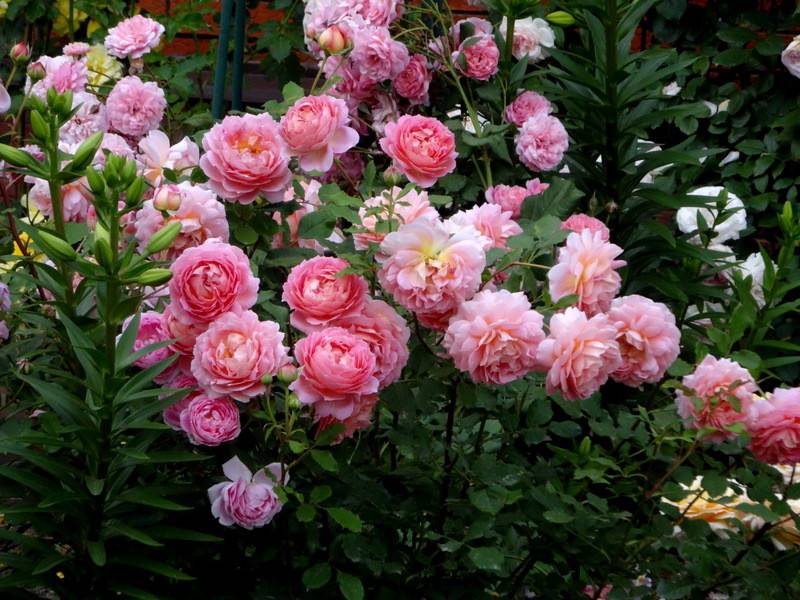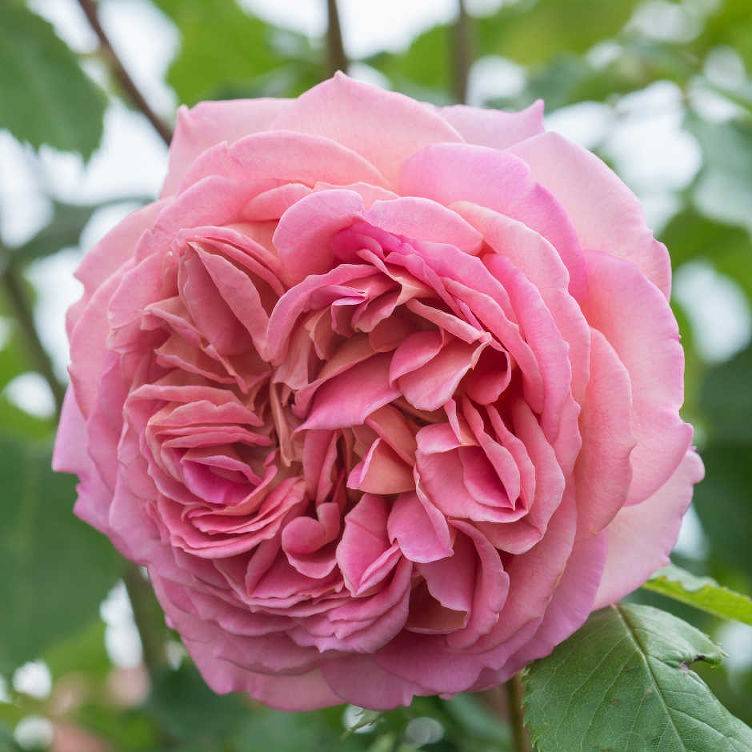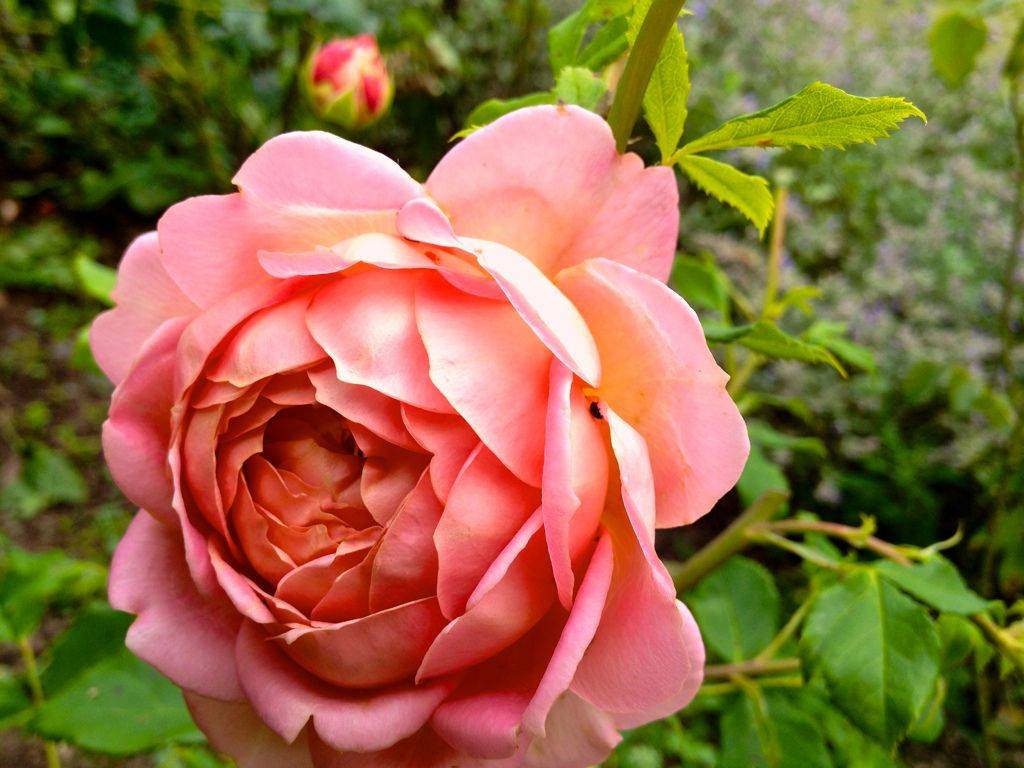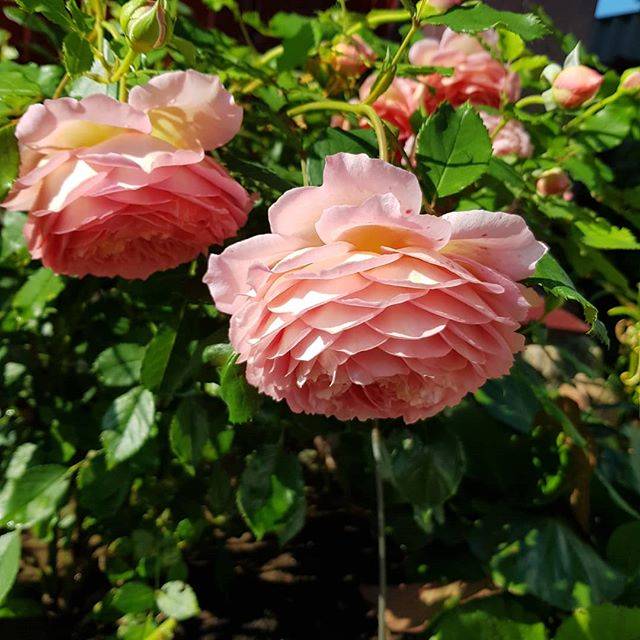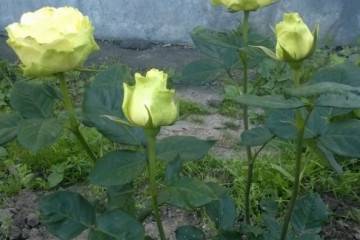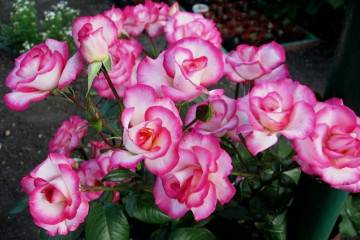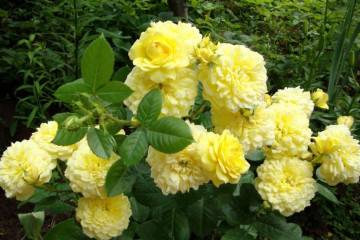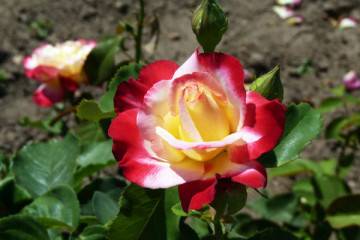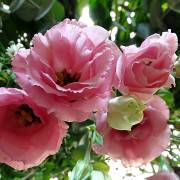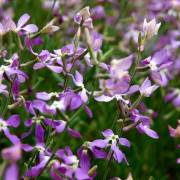Rose Jubilee Celebration - growing Ostinka
Content:
English rose varieties embody aristocratic beauty, lush buds are combined with an ancient form. Rose Jubilee Celebration has won the hearts of flower growers around the world, becoming a classic garden decoration. Its buds have a surprisingly delicate shade of pink, close to salmon. This variety can withstand extreme cold and also exudes a scent with hints of raspberry and lemon.
Jubilee Celebration rose description
The English park rose Jubilee Celebration was presented in 2002 by D. Austin. The variety got its name in honor of a significant event - the anniversary of Queen Elizabeth II.
These roses have an old bell-shaped shape, at first they were not well received. However, over time, flower growers appreciated the merits of the variety; today it is actively used in landscape design.
Julibi flowers are densely double, the buds are large, lush and bell-shaped. Their diameter is 6-7 cm, the color of the petal is soft salmon with a golden tint. The height of the bushes reaches 120 cm, the same width. The leaves of young shrubs have a reddish tint, becoming green as they grow.
Among the advantages of the English variety, flower growers note:
- winter hardiness, resistance to diseases and pests;
- classic shape of buds, beautiful shade;
- a specific pleasant aroma spreading at a distance of 2 m from the bush;
- no need to form a bush;
- flowering continuity.
However, before buying seedlings, you need to seriously consider the disadvantages of the variety. Julibi's roses do not tolerate dampness and temperature extremes if they occur constantly. The planted shrub grows slowly, and the first buds are tilted downward. Not knowing this nuance, some growers are disappointed in the variety ahead of time.
This rose is actively grown in rose gardens, where, due to its dull color, it harmonizes perfectly with other varieties. On the site it goes well with coniferous plantings, this is facilitated by the delicate shade of the buds and the rounded shape of the shrub. It is recommended to plant several bushes at once, so they look more impressive.
Growing a flower: how to plant it in open ground
The English rose Jubilee Celebration is unpretentious in care, but the planting will have to be taken responsibly. The right time for work is April-May, when the ground has warmed up enough. There are several factors to consider when choosing a location:
- Julibi's rose looks luxurious, you should not hide it in a corner of the garden;
- the place should be well lit, but not fall under the scorching rays of the sun;
- drafts are contraindicated for a rose bush, only a light breeze;
- the ground should not be swampy;
- stagnant cold air will harm the rose.
Due to its good frost resistance, the variety is planted in a temperate climate; it is not afraid of the winter cold. For planting, you need to prepare a hole 60 cm deep, at the bottom of which a drainage layer is laid. It can be small stones, gravel or crushed stone, the layer should be 10 cm. Organic fertilizers are poured over it, the layer thickness remains the same. After that, you should add garden soil and start preparing the seedling.It needs to get rid of weak shoots and shorten healthy ones, this will help the plant to strengthen faster.
The landing procedure is as follows:
- Set the root collar so that it is 3 cm below the surface.
- While holding it, spread the roots over the surface.
- Compact the soil between the roots.
- Water the bush under the root, add the settled earth.
- Carry out mulching with peat.
Such a planting will allow the shrub to grow more voluminous, with many young shoots.
Plant care
The Julibi variety was sourced in England, which affected his care requirements. First of all, you need to properly water the rose bush. Overflow is unacceptable, the rose can get sick from excess moisture. But it is also impossible to leave the bush without water. It is best to water it 1-2 times a week, checking the soil moisture.
Clay soil is contraindicated for a rose, it is better to make a mixture of peat, fertile garden soil (1: 1) and 2-3 handfuls of bone meal. Fertilizers are required in early spring - nitrogenous and organic during the flowering period.
Pruning for Julibi is in the nature of healing - faded buds, dried weak shoots are removed. Some stems have the wrong direction of growth - inward, so they are also removed.
Concern for a rose with the onset of cold weather is understandable, many are in a hurry to shelter such a delicate beauty from the cold in the fall. However, this variety tolerates frost well, it is not necessary to cover it up to -7 ° C degrees, since the bush will simply stifle. Only with the onset of cold weather should it be cut off (remove the faded buds) and covered with spruce branches. More soil needs to be poured near the ground so that the roots do not freeze. Closer to April, you can start airing the rose, and by the end of the month, open it. So she will not feel the negative effects of the temperature drop.
Blooming rose
Originally the Julibi cultivar was supposed to bloom twice, but the result exceeded expectations - three waves of bloom! Moreover, the buds remain lush and decrease slightly as autumn approaches. During the flowering period - from May to October - you need to water the bush abundantly (as the topsoil dries up) and apply fertilizers with phosphorus and potassium.
If the rose has stopped blooming, you need to examine it. The reasons can be different: from a lack of light to pests that have appeared. Also, we must not forget about the simple advice - the faded buds must be removed, otherwise they will begin to form seed pods. The bush will spend energy on them, and the buds will become smaller.
Flower propagation
Reproduction of the Julibi variety is carried out by cuttings, the branches are cut in early June. You need to choose adult shoots, their thickness should be at least 4 mm. Each shoot should be cut into several pieces so that they have 3-5 buds. In order not to confuse which side to plant the cutting, the upper cuts can be made straight, and the lower ones oblique. The former are made almost 2 cm higher than the top, and the latter are made immediately below the bottom.
If the cuttings are planted immediately, you need to leave a few leaves on top, and completely remove the bottom ones.
Diseases, pests and ways to control them
The Julibi variety is rarely sick, but infection is still possible. In this case, it is necessary to carry out processing (repeated), having previously accurately diagnosed. Common misfortunes and ways to deal with them:
- the walnut is destroyed by the lightning preparation;
- get rid of spider mites with fufanom or spark-M;
- powdery rot recedes after spraying with soapy water;
- confidor and bison will save from green aphids.
So that the plant does not hurt, you need to follow all the rules of care and timely water and prune.
Juliby Celebration is one of the best English rose varieties, surpassing many others with its aesthetic properties. Amazingly beautiful bloom and delicate aroma will make the flower the property of the garden. It is unpretentious in care, simple rules are easy to follow even with large plantings of rose bushes.
